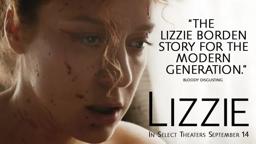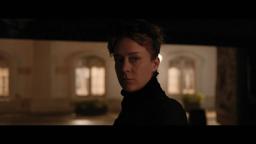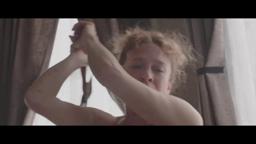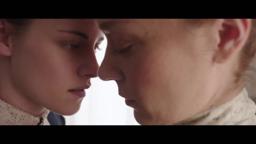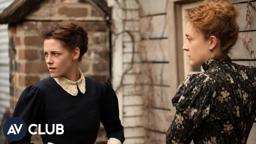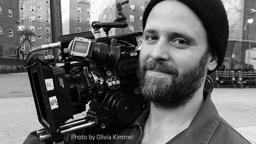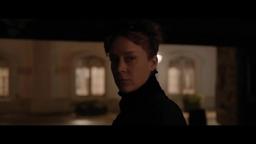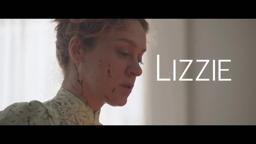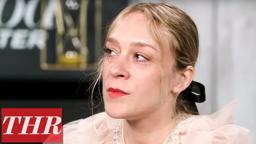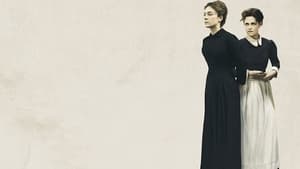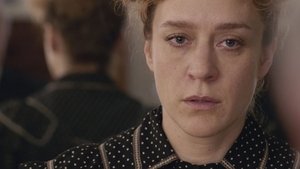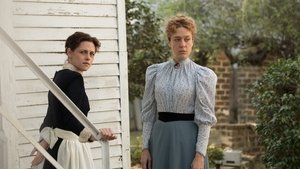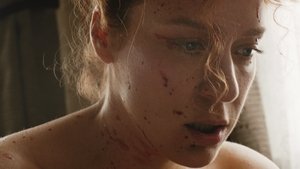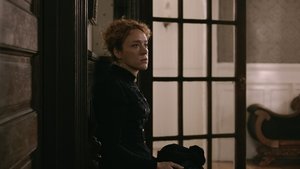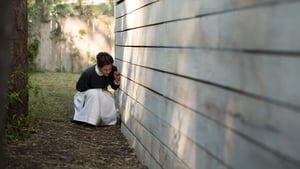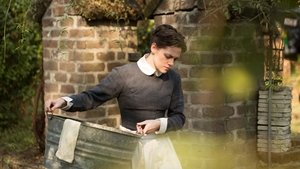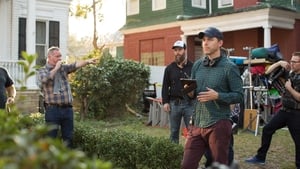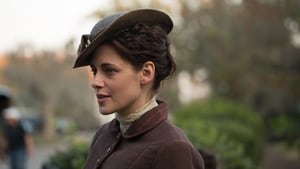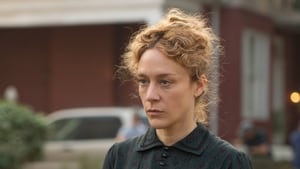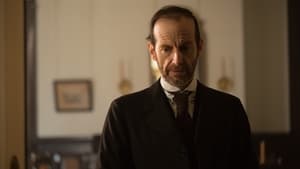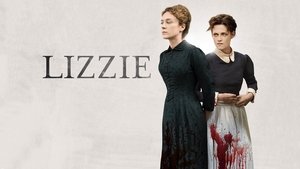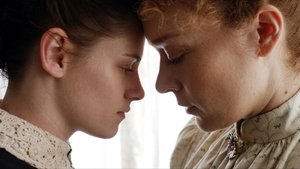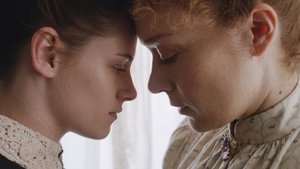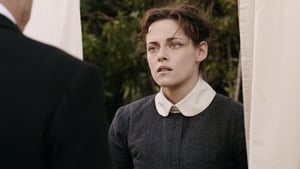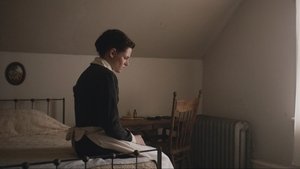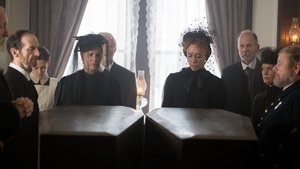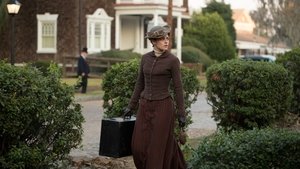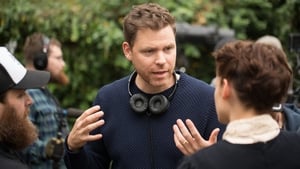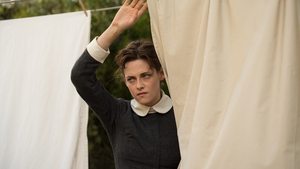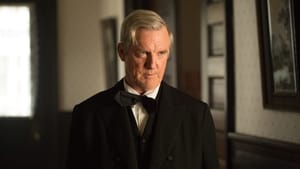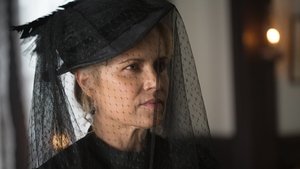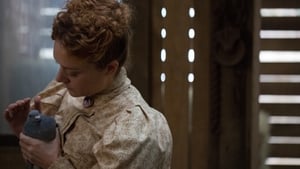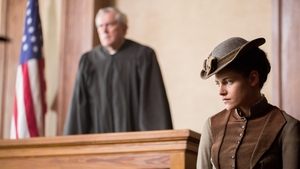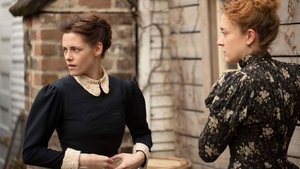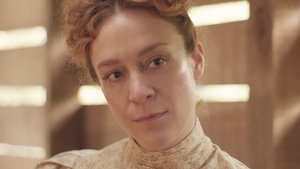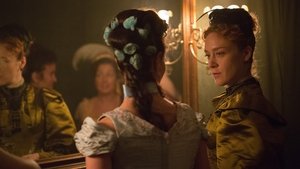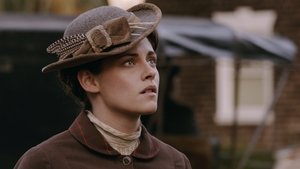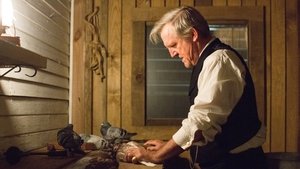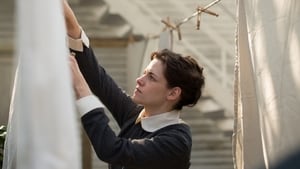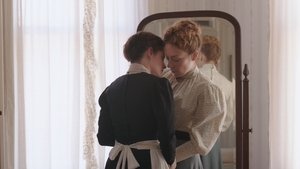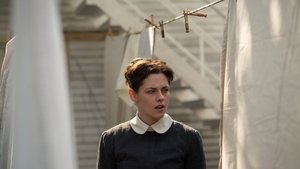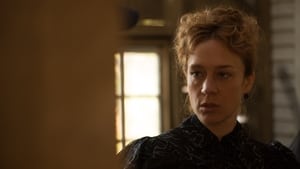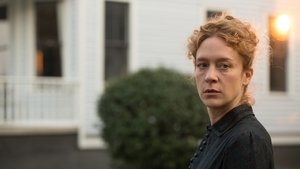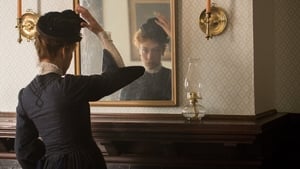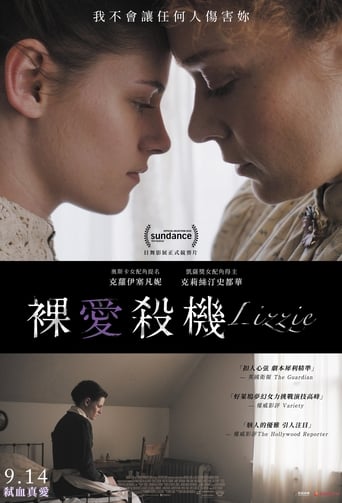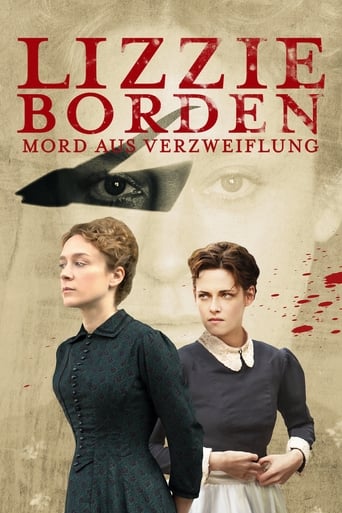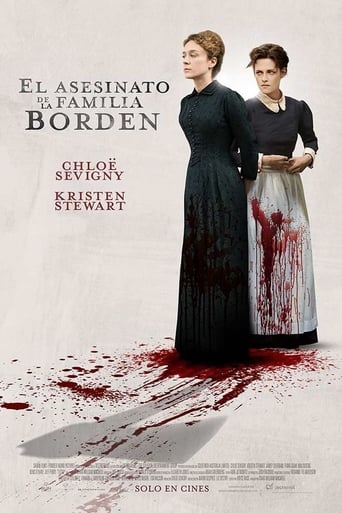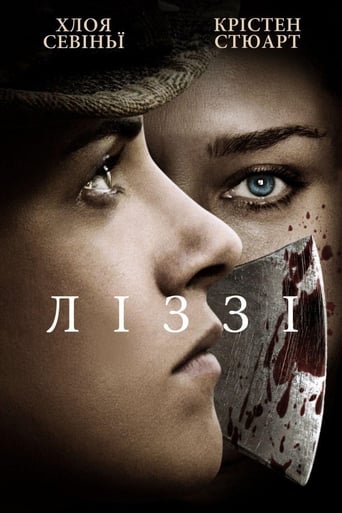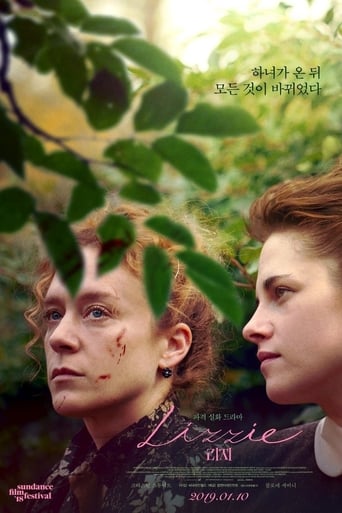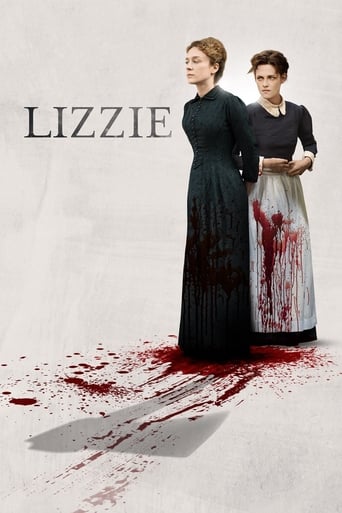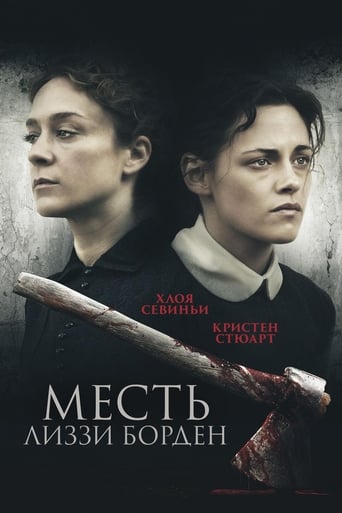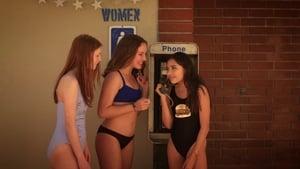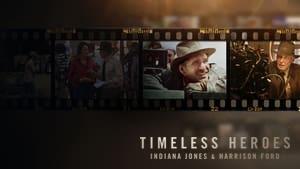
Lizzie
The legend of Lizzie Borden
2018 | 106m | English
Popularity: 4 (history)
| Director: | Craig William Macneill |
|---|---|
| Writer: | Bryce Kass |
| Staring: |
| Massachusetts, 1892. An unmarried woman of 32 and a social outcast, Lizzie lives a claustrophobic life under her father's cold and domineering control. When Bridget Sullivan, a young maid, comes to work for the family, Lizzie finds a sympathetic, kindred spirit, and a secret intimacy soon blossoms into a wicked plan. | |
| Release Date: | Sep 14, 2018 |
|---|---|
| Director: | Craig William Macneill |
| Writer: | Bryce Kass |
| Genres: | |
| Keywords | last will and testament, axe murder, housemaid, lizzie borden, murder trial, father daughter relationship |
| Production Companies | Artina Films, The Solution, Destro Films, Powder Hound Pictures |
| Box Office |
Revenue: $844,786
Budget: $0 |
| Updates |
Updated: Feb 01, 2025 Entered: Apr 13, 2024 |
| Name | Character |
|---|---|
| Chloë Sevigny | Lizzie Borden |
| Kim Dickens | Emma Borden |
| Kristen Stewart | Bridget "Maggie" Sullivan |
| Jamey Sheridan | Andrew Borden |
| Fiona Shaw | Abby Borden |
| Denis O'Hare | John Morse |
| Jeff Perry | Andrew Jennings |
| Jody Matzer | Deputy Fleet |
| Daniel Wachs | Dr. Bowen |
| Roscoe Sandlin | Judge Blaisdell |
| Darin Cooper | Jury Foreman |
| Don Henderson Baker | Marshall Hilliard |
| Laura Whyte | Mrs. Brayton |
| Tom Thon | Professor Wood |
| Tara Ochs | Susan Gilbert |
| Jay Huguley | William Moody |
| Katharine Harrington | Matron |
| Vivian Majkowski | New Housemaid |
| Name | Job |
|---|---|
| Tierre Turner | Stunt Coordinator |
| Anthony Paderewski | Location Scout |
| Craig William Macneill | Director |
| Kate Geller | Casting |
| Scott Meekins | Location Production Assistant |
| Robert Eli Moses | Location Production Assistant |
| Charles Baxter | Driver |
| Timothy P. Jackson | Driver |
| Laura 'Trouble' Hayes | Driver |
| Nate Howard | Driver |
| Adil Mustafa | Driver |
| Babbett 'Babs' Smith | Driver |
| Leroy Williamson | Driver |
| Earl Wilson | Driver |
| Chris 'Barefoot' Allen | Driver |
| Abbi Jutkowitz | Editor |
| Yann Sobezynski | First Assistant Director |
| Melizah Anguiano Wheat | Hair Department Head |
| Stacey Panepinto | Makeup Department Head |
| Natalie O'Brien | Costume Design |
| Nicole LeBlanc | Art Direction |
| Elizabeth Jones | Production Design |
| Jessica Kelly | Casting |
| Lynn Appelle | Line Producer, Unit Production Manager |
| Bryce Kass | Writer |
| Mark Romanelli | Second Assistant Director |
| Genevieve Hawkins | Production Coordinator |
| Marley Mountcastle | Production Secretary |
| Bree Doehring | Production Office Assistant |
| Alexander B. Hill | Script Supervisor |
| Tom Hardin | Production Accountant |
| Marie Hunter | Payroll Accountant |
| James Passanante | Construction Coordinator |
| Courtney Fredette | Painter |
| Tyson Pixler | Painter |
| Francis Stone | Painter |
| Teresa Strojny | Painter |
| James Sullivan | Painter |
| John Faivre | Propmaker |
| Mark Austin | Propmaker |
| Wiley Workman | Propmaker |
| Jeff Berry | Carpenter |
| John Fitzpatrick Jr. | Greensman |
| James Edward Ferrell Jr. | Set Decoration |
| Bob Smith | Leadman |
| Sue Ruby | Set Decoration Buyer |
| Amber Axelton | Set Dresser |
| Jonathan Barrows | Set Dresser |
| Dean Burns | Set Dresser |
| Adam Chase | Set Dresser |
| Jonathan Dossman | Set Dresser |
| Aljournal Franklin II | Set Dresser |
| Gregory Gordan | Set Dresser |
| Scott A. Lawson | Set Dresser |
| Chelsea Lockhart | Set Dresser |
| Anthony Maurella | Set Dresser |
| Jameson T. Meadows | Set Dresser |
| Alex Richards | Set Dresser |
| James Johnston | Swing |
| Jim Nelson | On Set Dresser |
| Michael Williamson | Property Master |
| Renée Leventis | Assistant Property Master |
| Margaret 'Missy' Hibbard | Art Department Assistant |
| Diana Ardila Gonzalez | Art Department Assistant |
| Chris Johnson | Camera Operator, Steadicam Operator |
| Richard Lacy | First Assistant Camera |
| Kane Pearson | Second Assistant Camera |
| Josh Morton | Additional Camera |
| Christian G. Hawkins | Additional Second Assistant Camera |
| Amanda Kulkoski | Additional Second Assistant Camera |
| Eliza Morse | Still Photographer |
| Anton Gold | Production Sound Mixer |
| James Bertis | Boom Operator |
| Ebner J. Valdes | Utility Sound |
| Peter Walts | Gaffer |
| Stephen Cabinum | Best Boy Electrician |
| Kahlil Fadel | Generator Operator |
| Kyle Perritt | Electrician |
| Cory Corbett | Electrician |
| David Spencer | Key Grip |
| Dave Knudson | Best Boy Grip |
| Gavin Chin | Dolly Grip |
| Brandon Babbit | Grip |
| Sawyer Oubre | Grip |
| Connor Williams | Grip |
| Michael Buster | Dialect Coach |
| Vivian Majkowski | Dialect Coach |
| Wendy Moynihan | Assistant Costume Designer |
| Kristin Morlino | Costume Supervisor |
| Kristen Anthony | Key Set Costumer |
| Kara Talley | Key Set Costumer |
| Lauren Britt | Set Costumer |
| Sheila Ferguson | Seamstress |
| Cocoa Rigal | Costume Consultant |
| J.C. Davis | Key Hair Stylist |
| Dawn Brown | Additional Hairstylist |
| Shaquanta Green | Additional Hairstylist |
| Maria Vaughan | Additional Hairstylist |
| Tori Fields | Additional Hairstylist |
| Rebecca Hickey | Key Makeup Artist |
| Sarah Lawless Emmett | Makeup Artist |
| Wendy Armstrong | Catering Head Chef |
| Kate 'Lexi' Vanlandingham | Assistant Chef |
| David Cortes | Assistant Chef |
| Wendy Geary | Second Second Assistant Director |
| Corey Leon Howard | Key Set Production Assistant |
| Lucas Gregg | Set Production Assistant |
| Olivia O'Hara | Set Production Assistant |
| George Watson | Set Production Assistant |
| Zachary Horrell | Set Production Assistant |
| Jody Schiesser | Location Manager |
| James Troutman | Assistant Location Manager |
| Cayman Eby | Location Scout |
| Coy Campbell | Location Assistant |
| Oran Domingue | Location Production Assistant |
| Mitchell Harper | Location Production Assistant |
| Doug Wright | Transportation Coordinator |
| Randy Southerland | Transportation Captain |
| Tina Anderson | Driver |
| Terry Jackson | Driver |
| Emmett Brannen | Set Medic |
| Shelley A. Fields | Set Medic |
| Richard Manning Hughes II | Set Medic |
| Cindy Kaufman | Set Medic |
| Art Rincones | Set Medic |
| Zachary Rowe | Set Medic |
| James Willis | Set Medic |
| Nicole Kanoy | Animal Wrangler |
| Jonathan Ferrantelli | Post Production Supervisor |
| Nancy Galvan | First Assistant Editor |
| Jason Crump | Colorist |
| Asaf Yeger | Visual Effects Supervisor |
| Vico Sharabani | Visual Effects Supervisor |
| Kathryn Sigismund | Visual Effects Coordinator |
| Marlena Grzaslewicz | Dialogue Editor, ADR Editor |
| Ruy García | Supervising Sound Editor, Sound Re-Recording Mixer |
| Chris Foster | Sound Effects Editor |
| Allen Lau | First Assistant Sound Editor |
| Aleksandra Stojanovic | Foley |
| Luciano Vignola | ADR Mixer |
| Bill Higley | ADR Mixer |
| Bryn Neuenschwander | Project Manager |
| Jay Rubin | Project Manager |
| Michael Perfitt | Score Engineer, Scoring Mixer |
| Amy Doherty | Orchestrator |
| Perrine Virgile | Additional Music |
| Sally Swisher | Music Editor |
| David Lefkowitz | Title Designer |
| David Fletcher | Special Effects Coordinator |
| Chris White | ADR Mixer |
| John 'J.R.' Craigmile | Post Production Accountant |
| Jeff Russo | Original Music Composer |
| Noah Greenberg | Director of Photography |
| Marian Green | Stunt Coordinator |
| Chad Darnell | Extras Casting, Local Casting |
| Matea Prljevic | Music Editor |
| Name | Title |
|---|---|
| Chloë Sevigny | Producer |
| Elizabeth Destro | Producer |
| Naomi Despres | Producer |
| Edward J. Anderson | Executive Producer |
| Joshua Bachove | Co-Producer |
| Carolyn Hunt | Executive Producer |
| Bryce Kass | Executive Producer |
| Myles Nestel | Executive Producer |
| Roxanne Fie Anderson | Executive Producer |
| Lisa Wilson | Executive Producer |
| Kendall Rhodes | Co-Executive Producer |
| Elizabeth Jayne Stillwell | Executive Producer |
| Organization | Category | Person |
|---|
Popularity History
| Year | Month | Avg | Max | Min |
|---|---|---|---|---|
| 2024 | 4 | 18 | 29 | 12 |
| 2024 | 5 | 21 | 41 | 13 |
| 2024 | 6 | 16 | 31 | 8 |
| 2024 | 7 | 14 | 25 | 8 |
| 2024 | 8 | 14 | 24 | 8 |
| 2024 | 9 | 9 | 12 | 7 |
| 2024 | 10 | 12 | 21 | 7 |
| 2024 | 11 | 12 | 24 | 7 |
| 2024 | 12 | 14 | 40 | 7 |
| 2025 | 1 | 14 | 30 | 6 |
| 2025 | 2 | 8 | 14 | 3 |
| 2025 | 3 | 4 | 10 | 1 |
| 2025 | 4 | 2 | 5 | 1 |
| 2025 | 5 | 2 | 6 | 1 |
| 2025 | 6 | 1 | 3 | 1 |
| 2025 | 7 | 1 | 2 | 1 |
| 2025 | 8 | 2 | 7 | 1 |
| 2025 | 9 | 3 | 7 | 2 |
| 2025 | 10 | 3 | 4 | 2 |
| 2025 | 11 | 2 | 4 | 1 |
| 2025 | 12 | 3 | 5 | 2 |
| 2026 | 1 | 3 | 5 | 2 |
Trending Position
**_Could do with a bit more vitality, but the acting is superb_** _I knew there was an old axe down cellar; that is all I knew._ - Stefani Koorey quoting Lizzie Borden; _The Preliminary Hearing in the Lizzie Borden Case_ (2005) Written by Bryce Kass, and directed by Craig William Macneill, ... _Lizzie_ is based on the _cause célèbre_ of Lizzie Borden (not to be confused with director Lizzie Borden, or extreme porn star/director Lizzy Borden), who was accused and subsequently acquitted of the axe murders of her father and stepmother in Fall River, Massachusetts in 1892, a crime that is still officially unsolved. A "_smash-the-patriarchy_" (to use a quote from producer and star Chloë Sevigny) revisionist take on the material, the film presents Borden as a protofeminist lashing out against patriarchal oppression, homophobia, and sexual assault. Strikingly contemporary in its thematic concerns, this long-time passion project for Sevigny adopts the perspective of the #MeToo movement, proposing a version of events wherein Borden is forced to actively fight back against a lifetime of subjugation. Although the languid pace will alienate many viewers, whilst the liberties it takes with historical facts will irk others, there is much to praise here, including fantastic cinematography, terrific sound design, and flawless acting. The film begins on the day of the murders, August 4, 1892, with Borden (a terrific Chloë Sevigny) and housemaid Bridget Sullivan (Kristen Stewart, with a surprisingly convincing Irish accent) working in the garden moments before the bodies are discovered. The narrative then jumps back six months, presenting the family dynamic leading up to the murders. 32-years-old, Borden lives with her domineering father, Andrew (a lecherous Jamey Sheridan); stepmother, Abby (Fiona Shaw), and elder sister, Emma (a criminally underused Kim Dickens). Although the Borden family are prominent members of the community, Andrew is well-known for frugality, refusing to install indoor plumbing or electric lights in the house, believing them "_extravagances_". When Sullivan arrives as a live-in housemaid, she and Borden quickly grow close, with Borden attempting to teach her to read and write. Meanwhile, the family is receiving written threats, which Borden believes are connected to her father's land acquisitions. Overhearing Andrew discussing his will with his brother-in-law, John Morse (a slimy Denis O'Hare), Borden is shocked to learn Andrew plans to leave everything to Abby. She later discovers that Andrew is regularly sexually assaulting Sullivan. Eventually, the friendship between Borden and Sullivan turns romantic. However, when Andrew learns of it, he forbids Borden from seeing Sullivan again, something Borden refuses to accept. Well-known in the US because of the nursery rhyme, this is actually the first theatrical feature to depict Borden's story, although it has been adapted many times for other mediums; a 1948 Agnes de Mille ballet (_Fall River Legend_), a 1952 Michael Brown musical number (in _New Faces of 1952_), a 1961 Chad Mitchell Trio song ("Lizzie Borden"), a 1965 Jack Beeson opera (_Lizzie Borden_), a 1975 Paul Wendkos-directed TV movie (_The Legend of Lizzie Borden_), a 1980 Sharon Pollock play (_Blood Relations_), a 1984 Evan Hunter novel (_Lizzie_), a 1985 Angela Carter short story ("The Fall River Axe Murders"), a 1989 Walter Satterthwait novel (_Miss Lizzie_), a 1998 Christopher McGovern and Amy Powers musical (_Lizzie Borden_), and a 2014 Nick Gomez-directed TV movie (_Lizzie Borden Took an Ax_), which led to a limited series (_The Lizzie Borden Chronicles_). The idea for the film originated with Sevigny herself, who brought it to Kass to write as a TV miniseries almost a decade ago. The script was sold to HBO in 2011, but by the time the network decided to move forward with the project, Lifetime's _Lizzie Borden Took an Ax_ was nearing completion. When it spawned _The Lizzie Borden Chronicles_, HBO decided against proceeding with Sevigny's version, so she and Kass purchased the rights back, with Kass adapting the script into a feature film. Pieter Van Hees was hired to direct, but had to drop out due to scheduling conflicts, and was replaced by Macneill. The idea that Borden and Sullivan were lovers is not original to Kass's script, as it was first posited in Hunter's novel. He theorised that Abby had caught the girls having sex, firing Sullivan, and prompting Borden to kill her. When Andrew returned home, Borden confessed, but when he reacted with horror, she also killed him. In later life, Borden was rumoured to be a lesbian, but there was no such speculation about Sullivan, who moved to Butte, Montana and got married. Speaking to the _Huffington Post_ at Sundance 2018, Sevigny revealed she was somewhat disappointed with the finished film, stating > _almost everything that was on the page was filmed, and a lot of it didn't make it in the movie. More stuff with me and Fiona Shaw. There was more to the relationships that made them more complicated, and also then informed why Lizzie did it. Now it's a little more vague than what Bryce and I intended._ One of most interesting aspects of _Lizzie_ is its narrative structure. Beginning on August 4 just as the (unseen) bodies are discovered, it then flashes back six months to Sullivan's arrival in the Borden house. Building up to August 4 again, this time we are shown the bodies, but we don't see the murders. It then jumps forward to the trial, before once again flashing back to August 4, this time showing us the actual killing. This pseudo-_In Cold Blood_ structure is well-handled for the most part, and has a number of advantages. For one, it allows the film to briefly cover the trial, whilst still employing the murders as a powerful and very effective _dénouement_. It also allows the film to build tension around an event which the audience know is coming; by not showing the killings (twice), it has the effect that when the film does actually depict them, they are all the more impactful, placing a suitable cap on what is essentially a story of forbidden love. From an aesthetic point of view, there's much to praise, with Noah Greenberg's cinematography particularly laudable. Often framing Borden in windows, doorways, and behind railings, whilst also using shallow focus to flatten backgrounds, the sense is that this is a woman living a confined life with little room to move, trapped in her immediate environment. When she and Sullivan first kiss, the camera pulls back to reveal that Andrew is watching them – even in this moment of release, they are still trapped in his domain. Borden is also often shot off-centre, or reflected in mirrors, particularly as she talks to someone who is on camera. This reinforces the sense that she is trapped, and also feeds into the metaphorical meaning of a later scene where she spreads the shards of a broken mirror outside the door of Sullivan's room to cut her father's feet as he emerges. Dank and airless, the dimly lit Borden household, outside of which the film rarely ventures, is practically another character in and of itself. Complimenting Elizabeth J. Jones's production design, Greenberg's photography gives rise to a restrictive and claustrophobic _mise en scène_, which is often lit with only a single candle. However, it's not just how he lights scenes that impresses, it's also how he uses the camera; gliding over important details without hammering home why we should be paying attention (the first time we see the hatchet, for example). Also worth mentioning is how Macneill uses the full-frontal nudity towards the end of the film. Although it will no doubt be accused of gratuitousness by some, it's not only historically accurate, it's shocking, necessary, and makes a powerful statement. God forbid a woman should ever appear naked on screen in a scene _not_ of a sexual nature. Assisting Greenberg's photography and Jones's design is Ruy García's superb sound design. Of particular note are the floorboards, which creak with the slightest touch, making any kind of clandestine interaction between Borden and Sullivan virtually impossible, and thus contributing to the sense of the household as a prison. Enhancing this even further, is the lack of warmth in the sound design, with footsteps and voices echoing and bouncing off the walls due to the lack of any soft surfaces. As a narrative of female empowerment (albeit of the homicidal variety), most of the film's main themes relate to combating the patriarchal strictures of the Gilded Age, represented primarily by Andrew and John, both loathsome characters in their own way, and Abby, who reinforces patriarchal hypocrisy by unquestioningly submitting to it (she is well aware that Andrew is abusing Sullivan, for example). Talking to the _Huffington Post_, Sevigny explains, > _we just really wanted to focus on how she went about finding [her freedom] and how important that was to her and what that meant to her. Whether it was through the relationship with Bridget or ultimately killing her parents for money – because money equalled freedom then. It still does. I wanted it to be this rousing, smash-the-patriarchy piece and then she gets everything she wants, monetarily – the capitalist dream._ Presenting Borden as a woman driven to her wit's end, with few practical options in a society that looks down on her because she is unwed and in her 30s, the film depicts a free-spirit living in a cage, yearning for agency, with the murders presented, at least in part, as her attempt to break free of such restrictions. Suffocated by unquestioned authoritarian patriarchal rule, Borden essentially becomes a protofeminist heroine, actively rebelling against the dominion of men and the women who enable them. Sullivan, who acts as the audience's moral compass, faces different obstacles, primarily related to economics and social caste. Her place in the ideological and socio-economic hierarchy is manifested in the fact that the family call her Maggie (the generic name given to all Irish servants). However, Borden's insistence on calling her by her actual name (which is historically inaccurate, as Borden also called her Maggie) lays the groundwork for their later emotional connection. Presenting their relationship as an illicit romance which they had to hide because of the moral bigotry of the age, the film very much adopts a #MeToo sensibility, as Borden and Sullivan fight back against self-righteous judgement, unchecked abuse, and socially sanctioned oppression. In this sense, when Borden and Sullivan strip naked before the murders, they aren't just undressing to avoid getting incriminating blood on their clothes, they are repudiating the garments that have restricted them in a physical sense just as much as men have in an ideological sense. There are, however, some sizeable problems in all of this. For one, the film lacks energy, and the slow pacing will leave some viewers bored to tears. Additionally, apart from Sevigny and Stewart, the rest of the cast is wasted, particularly Shaw, O'Hare, and Dickens (who only has a handful of scenes, and is virtually a background extra). None of their characters come across as possessing any kind of interiority, instead existing almost exclusively as archetypes; the wicked stepmother, the lecherous uncle, and the ice-cold older sister. Additionally, although he has a lot more to do, Sheridan's Andrew is completely over-the-top, only one or two beats away from a moustache-twirling mega-villain. Perhaps the most egregious problem is that the film seems as war with itself. On the one hand, it wants to be an elegant, period-appropriate tale of women attempting to take their destinies into their own hands in a Victorian society not predisposed to allow such, but on the other, it wants to present a modern story of murder and homosexual women (Patty Jenkins's _Monster_ (2003) in corsets, if you will). At times, such as the superb depiction of the murders themselves, you can feel the modern sensibilities rise to the surface, but for the most part, they're stifled by the hushed austerity of the more muted _milieu_. _Lizzie_ tells the story of an initially powerless victim who lashes out and, quite literally, slays patriarchal authority. Just by giving Sevigny the first significant starring role of her career, the film earns a lot of brownie points, as she's been an unsung, but consistently brilliant supporting player since her debut in Larry Clark's _Kids_ (1995). Alongside her, Stewart equates herself very well, even having a decent go at an Irish accent, and the passion between the two, though period-appropriately muted, is completely believable. However, the film's attempts to shoehorn in 21st century moral values doesn't entirely work, primarily because Kass's script tips the scale in Borden's favour to a ridiculous degree – there's Andrew's over-the-top villainy (not just an authoritarian homophobe, but a rapist to boot), John's creepy intimations, Abby's refusal to stand up for her step-daughters, Borden's protofeminist rhetoric and humanitarianism, the alterations to historical fact to ensure the audience is never in any doubt as to where its sympathies are supposed to lie. Weighing the scales so decisively drains the film of any ambiguity and most of its vitality, presenting a binary story of righteous good slaying hypocritical evil, rather than a murder with many facets. A Gothic tale told from a #MeToo perspective, _Lizzie_ tries to be many things at once – a revisionist history, a feminist tract, a championing of homosexuality, a murder mystery, a period drama – but ends up kind of falling into a no man's land between genres. Still though, there are aspects of the film that are enjoyable, if you can look past the enervating pace.
Chloë Sevigny is unremarkable here, as the eponymous daughter in the rather oppressive Borden household. When they hire a new maid "Bridget" (Kristen Stewart), the two become friends and as the plot thickens, the renowned story of her axe-wielding and it's aftermath is presented to us. Stewart alway ... s comes across for me as a sterile actress; it doesn't matter what part she plays, she always looks completely dead behind the eyes - and in a role, here, that requires a great deal of intensity, she just doesn't deliver. Indeed, much of the entire focus here seems to have less to do with the murders, and of the frankly heinous way in which both sisters were treated by their molester of a father (Jeff Perry) and indifferent step-mother (Fiona Shaw), and more with any excuse to get naked and get down to some artily shot, passionless, lesbian nookie. If you know the story, then you will know what happens so there is no mystery to any of it - this is just an alternative, speculative, take on an history that could have delivered so much more had the director focused on the seriously undercooked characters and less on the aesthetics and the rather depressing score.
It's a re-imagined re-telling of an old whodunit. It's a decent movie if taken on its own merits. Every movie about historical events needn't be 100 percent factual. Creative license allows for historical accuracy to be bent or even broken. Kinda like with Abraham Lincoln: Vampire Hunter. ... Were salient details about our 16th president's life left out of the history books? We know Borden and his wife were hacked to death and no one was ever convicted. If Lizzie did it and got away with it, how could we know? Every fact can't possibly be known by anyone who wasn't present, either physically or by way of an audio or video recording of some kind. This is precisely HOW someone could have gotten away with murder in the 1800s. Good for you Lizzie. Good for you.









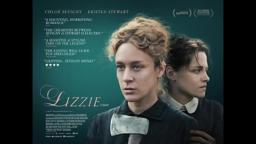
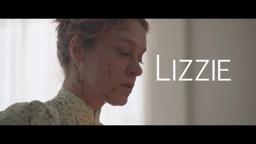
![LIZZIE Trailer [HD] Mongrel Media](/extra_thumbs/is9YMv-hjVU.jpg)
